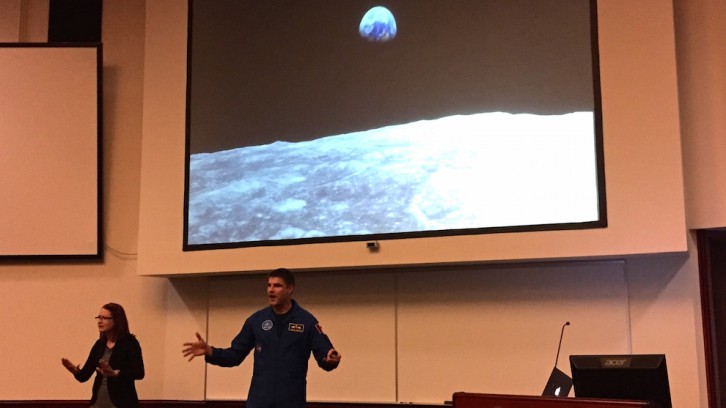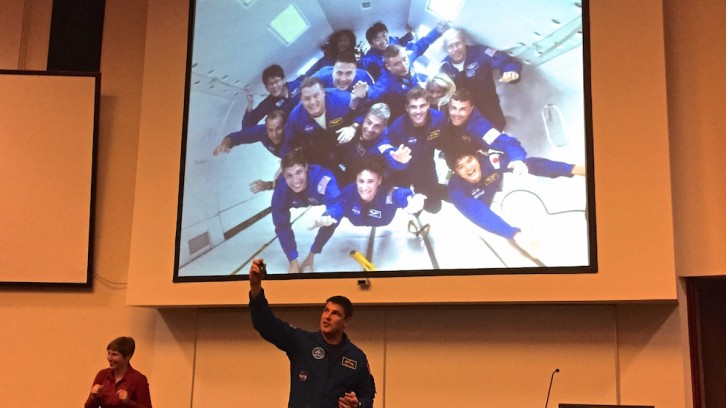Space exploration
Astronaut urges us to be modern-day adventurers
“There is a great benefit to humanity in exploring,” says Jeremy Hansen.

caption

caption
On the right, Jeremy Hansen speaks at the Scotiabank Theatre. On the left, stands a sign language interpreter.Dreaming big and setting goals is a huge part of the space exploration process, a Canadian astronaut told a crowd at Saint Mary’s University.
“I’m going to convey one important message to all of you, young and old, and that is I think there is a great benefit to humanity in exploring, setting big goals and achieving them,” said Jeremy Hansen, at a lecture Monday.
He was born and raised in Ontario, where he earned his bachelor of space science and a masters of physics from the Royal Military College of Canada in Kingston.
Selected as one of two active Canadian astronauts, along with David Saint-Jacques, in 2009, Hansen had to move to Houston, Tx., to start training at NASA.
He has never been to space, but is waiting for his turn to do so.
Collective power

caption
On the right, Jeremy Hansen speaks at the Scotiabank Theatre. On the left, stands a sign language interpreter.He joined a training class of Americans, Canadians, Japanese and Russians. Some had military backgrounds, one was a CIA agent and another was a biologist who studied the Ebola virus.
“We’ve got a lot of diverse backgrounds and what we all have in common is that throughout our lives we had somebody encourage us to set big goals, believing that we can achieve them,” said Hansen. “When I look back, that is really the key.”
Today, he works at NASA’s Mission Control Center–the voice between the ground and the International Space Station (ISS).
The difficulty of building complex space stations prompted international co-operation between the United States, Canada, Russia, Japan and a number of European countries to launch the International Space Station in 1998.
“To get that kind of international co-operation on a task that is this complex is nothing short of incredible,” he said. “It is an amazing accomplishment for humanity.”
“The goals drive the journey and the things we learn, shared with many other people, are the most treasured,” he added.
A question for the explorer
Hansen said, with the sheer number of stars in the universe, “statistically, it would seem that there is likely life out there.”
He added that even if there is life out there, aliens would be looking at a two million–year–old Earth and wouldn’t be able to see us as we are today.
“They can’t see us because the light of our time is not reaching them. They are looking at a universe that is way back in history. So it is very hard to say what is going on out there.”
“It makes you wonder: What are we missing? What else don’t we know?” he asked.

